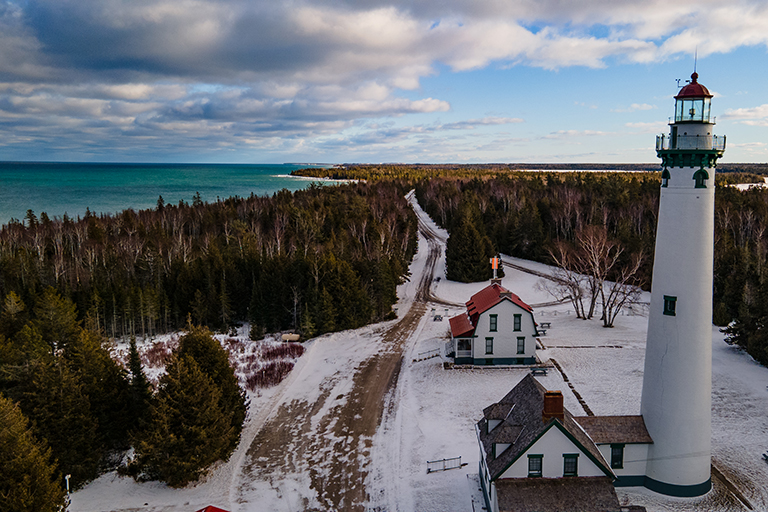When rain falls on established snowpack, it sets off a chain of events with significant implications for ecosystems, businesses, and communities. Perhaps nowhere is that more evident than in the Great Lakes Basin, which stretches from western Ontario to eastern Pennsylvania and where rain on snow has historically played a role in approximately 1 in 4 extreme snowmelt events.
To better understand the ecological, social, and economic consequences of rain on snow, a team of researchers, led by Indiana University’s Darren Ficklin, is creating a hydrological model to simulate the impacts of the phenomenon under changing environmental conditions. The project is part of the Midwest Climate Adaptation Science Center (CASC), a partnership between the US Geological Survey and a consortium of eight universities and natural resource organizations dedicated to advancing science in response to the climate crisis. IU’s participation in the Midwest CASC is coordinated by the Environmental Resilience Institute.
As climate change fuels shifting weather patterns, including extreme temperature and precipitation swings, findings provided by the study could help inform strategies to offset anticipated risks to Great Lakes Basin communities.
“Depending on whether precipitation falls as rain or snow, climate change might increase rain-on-snow events or it might decrease the frequency of these events,” said Ficklin, an associate professor in the IU Bloomington College of Arts and Sciences’ Department of Geography. “Either scenario has important implications for people and wildlife. For example, rainier winters with less snowpack may lead to streams that are too warm and kill or drive away cold-water fish. Our model aims to provide insight into how watersheds and rivers might be affected and where to target restoration and mitigation efforts.”




